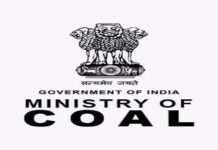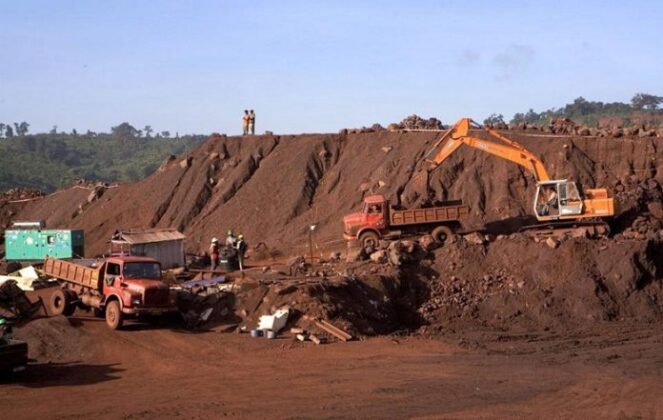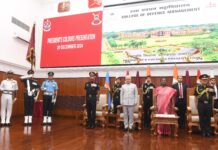By Our Correspondent
NEW DELHI/BHUBANESWAR: Union Minister of Coal, Mines and Parliamentary Affairs Shri Pralhad Joshi in a written reply in Rajya Sabha on Monday said, as per Rule 41 of the Mineral Conservation and Development Rules (MCDR), 2017,leaseholders are required to take all possible precautions to prevent or reduce the discharge of liquid effluents from mines into surface water bodies, ground water aquifer and useable lands. The effluents are required to be suitably treated to conform to the prescribed standards laid down in this regard.
Efforts are made by the leaseholders for mine water consumption for various purposes like, dust suppression, plantation, drinking purpose, irrigation & other mining / industrial use. Steps are also taken for re-cycling of mine water which is used in various mining / industrial activities to conserve the water. Some of the instances of usage of mine water for various domestic and industrial purposes are at Annexure.
Ministry of Jal Shakti in its notification S.O. 3289(E) dated 24th September, 2020 has mandated No Objection Certificate for mining projects which shall be granted subject to the condition that it shall be mandatory for all the mining industries to ensure that water available from de-watering operations is properly treated and should be gainfully utilized for supply for irrigation, dust suppression, mining process, recharge in downstream and for maintaining e-flows in the river system.
As per the information provided by Ministry of Coal, several initiatives are being taken by coal and lignite PSUs for supplying mine water to nearby community for domestic and irrigation use. The total volume of community water supply during FY 2021-22 has been 3703 LKL benefitting about 16.18 lakh people in 871 villages around various mines.
Further, Ministry of Coal, in their 5-year Vision Document envisaged a target for 2022-23 is to augment the total community water supply to 4000 Lakh Kilo litres (LKL) and during 2023-24 to 4300 LKL.
Rajasthan:
(i) In Jhamarkotra Rockphosphate Mine of M/s RSMM Ltd in Udaipur district of Rajasthan state, M/s RSMM Ltd. has taken permission to withdrawal of 6 Million Litres per day water from mine pit which is being supplied to PHED, Udaipur, Rajasthan for domestic use after consumption at mine site & IBP.
(ii) In Jai Surjana Limestone mine of M/s Birla Cement Works in Chittorgarh district of Rajasthan state, an exhausted mine pit is being used for rain water harvesting in which pumping is being done by PHED for supplying drinking water to Chittorgarh city.
Odisha:In many of the Chromite Mines Water Treatment Plants waste water is being treated before discharge from the mining lease area. Waste water from iron ore processing plant is also treated for separation of solid materials before discharge to natural water courses.
Karanataka: The mine water stored in the pits of Muddapur Mines of M/s J.K Cement Ltd is being used for processing of cement manufacturing and is also used for household purposes, in residential colony.
Maharashtra: In the Redi Iron Ore Mine of M/s Gogate Minerals in the Village Redi, Vengurla Taluka, Sindhudurg, the lessee took up the project to provide the clean and safe drinking water to the villagers with the construction of State of Art Reverse Osmosis Water Treatment Plant, in the year 2011. After the closure of block II, the old mining pit has been rehabilitated and being utilized as water reservoir.
Madhya Pradesh: In case of captive mines huge water reservoirs have been made for water storage purposes. Entire mine water is pumped out in these water reservoir. Further, huge quantity of mine pit water is also being used for various purposes i.e. washing of HEMM, in Power plant for cooling, plantation, ground water recharge etc. In some cases mine pit water being diverted to water reservoir and after necessary treatment this water is also being used for drinking purpose and later on, industrial use and use of Mines Office area. A water treatment plant have also been constructed this purpose.
In small non captive mines, especially in limestone mines mine water is pumped out from the pit and passes through settling tank into water channel which is utilized by nearby villages for agricultural and domestic purpose.
Kerala: In the English Indian Clays Limited mine, water collected in the mine pits is being utilized for various purposes like water distribution to local residents, spraying on haulage roads, for afforestation, for plantation etc. Mine water is directly sent to the residents through tankers for washing and allied purposes. Potable water is supplied to residents after proper water treatment. The treatment involves filteration through carbon and sand filter. Filtered water is then chlorinated before supply through supply through pipeline to the local residents.
In the the Kerala Minerals and Metals Ltd, Mine water in the mine pit is recycled to facilitate the dredging activities and no water is being pumped out of the mining pit.
In the Malabar Cements, mine water is being provided to the nearest Tribal Colony which is 8 km away. During summer, the savage water is used for Malabar Cements township also.
Andhra Pradesh, Telengana&Tamilnadu: There are many limestone mines in Andhra Pradesh, Telengana & Tamilnadu where mines water treatment plant is available.






























